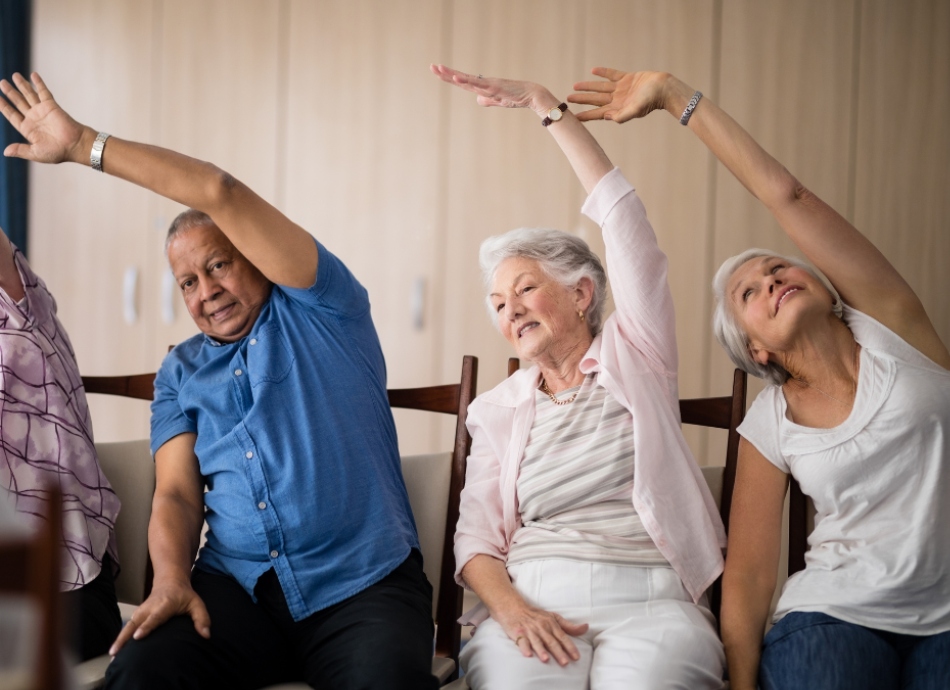We have genes passed down from our parents which are the pattern for how we look and how our bodies work. Some of the genes we have can make it more likely we will get essential tremor. We don’t know how this works yet but we think the genes affect the parts of our brain which control movement.
Love our website? We do too. Did you know we're a charity? Donate now to help us keep it free for everyone in Aotearoa New Zealand.
Essential tremors
Key points about essential tremor
- Essential tremor means uncontrolled trembling or shaking movements in parts of your body. It's usually your hands or arms which shake. The term 'essential' means that there's no other disease causing the tremor.
- It's quite common, up to 5 in every 100 adult New Zealanders have it.
- Essential tremor can happen at any age but is most common in people 40 years and older, and it's equally common in men and women.
- It tends to run in families, but can happen to anyone.
- People worry a tremor means they have Parkinson's but the 2 conditions are quite different.

The only symptom of essential tremor is trembling. If you have other symptoms it may be due to something else.
- For most people the tremor is mild.
- It usually starts in one hand, then after a year or two the other hand starts trembling too.
- About 3 in 10 people find their head starts nodding. Very occasionally people notice it includes their legs or their voice too.
- The tremors usually begin slowly. They'll usually start when you're using your arms, especially if you’re holding them in the same position for a long time, like stretching them out. There's no tremor when your arms are resting and when you’re asleep.
- The tremor may get worse with time. A small number of people find doing daily activities like getting dressed and eating can get very tough.
- About half notice their essential tremor gets better after a drink of alcohol.
- For some people, the tremor may be worse with:
- emotional stress
- tiredness
- caffeine
- temperatures which are too hot or too cold.
There's no test to diagnose essential tremor. Your healthcare provider will check your symptoms and your medical and family history. They'll also do a physical examination – this is mostly to rule out other causes for tremor. If it's not clear what's causing your symptoms, or if your healthcare provider thinks you may have a serious cause for your tremor, they may refer you to a neurologist (brain specialist.)
There's no cure for essential tremor.
- If your symptoms are mild, you may not need treatment.
- If you're having difficulty with daily activities because of your tremor, you may choose to take medicine for it. You can take beta blockers (eg, propranolol) just before an important event or every day, or a medicine that works on your brain called primidone.
- If medicines don't work and your tremor is severe your healthcare provider may refer you to a specialist to discuss brain surgery.
- Avoid things you know make your tremor worse.
- For people whose tremor gets better with alcohol, 2 units may work for about 4 hours. But more than that makes the tremor worse. It’s a good idea to avoid an alcohol problem by sticking to the safe amount.
- Yoga, acupuncture or tai-chi may be useful in relieving tremors worsened by stress.
- Get enough rest to reduce tiredness.
- Try using heavier cups, knives and forks, or a straw for drinking.
- Use a computer instead of writing.
- Use wrist weights for eating, writing or using the computer. You can buy these from sports shops or online.
Essential Tremor (ET) Support Group(external link)
Freephone 0508 873 667. Includes seminars, fundraising, surveys, research information, medical insights, ideas/hints from others with ET, their caregivers and physicians.
The following links provide further information on essential tremor. Be aware that websites from other countries may contain information that differs from New Zealand recommendations.
About essential tremor(external link)(external link) NZ Essential Tremor Support Group
Essential tremor(external link)(external link) Patient Info, UK
Treatments for essential tremor(external link)(external link) American Academy of Neurology
References
- Essential tremor(external link) Patient Info, UK
- Tremor(external link) Health Pathways, NZ
Credits: Healthify editorial team. Healthify is brought to you by Health Navigator Charitable Trust.
Reviewed by: Dr Emma Dunning, Clinical Advisor and Editor.
Last reviewed:
Page last updated:





